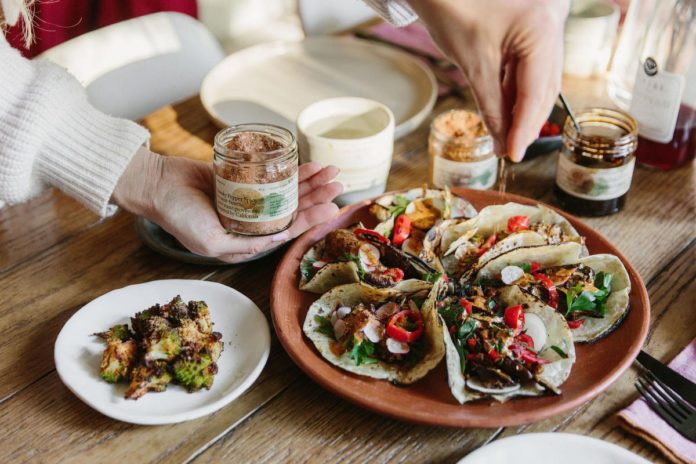Chef Camilla Marcus launches a zero-waste food company focusing on spices, snacks, and pantry … [+]
Westbourne
Chef Camilla Marcus opened the first zero-waste certified restaurant in NYC in 2018. Though it shut down during the pandemic, she’s bringing the vision of that restaurant to an online food business by its same name, west-bourne.
“We want to create craveable, sustainable food, experiences, and products that will become the new staples to the fast growing climate-aware community,” she says. “Our goal is to bring mindfulness to how you can eat in a way that’s delicious, inspiring, and approachable in your daily life while safeguarding our planet.”
West-bourne is inspired by her California upbringing and showcases plant-based, veggie-forward eating.
“Growing up in Los Angeles, living mindful to impact not imprint was a regular way of life, from farmers markets to plant based cooking to composting. I was raised with a deep appreciation for how food plays such a significant role in shaping our environment,” she says.
Founder Camilla Marcus.
Westbourne
This goes down to every detail, beyond just the food itself: the packaging is compostable, even the notes in the box are thoughtfully printed. The goal is to have the least possible footprint possible for a company that has to make physical goods and deliver them to your door.
“Sustainability,” she says, “has become somewhat co-opted as of late, particularly with more public pressure on companies, often those much larger than ours, to show progress in ESG. So, we see a lot of greenwashing and misinformation amidst a very rapidly changing landscape.”
Westbourne uses compostable and glass packaging steering clear of plastics.
Westbourne
Her lineup of snacks are not the usual healthy fare. Instead, she brings her understanding of the culinary world, and a love for the diversity of California, to her flavors. There’s a touch of Japan to West-bourne’s version of chex mix: a house togarashi spice blend gives new life to organic almonds, puffed rice, and crunchy corn. Or the pistachio dukkah, which marries a popular middle eastern and north African flavor with California-grown pistachios and organic seeds.
Organic ingredients are used wherever possible, and there’s even attention paid to using women-owned businesses and co-packers that use renewable energy and conserve resources. Plus, the brand highlights the story of the farms they work to get their primary ingredients —- often small farms in America that are growing organically or regeneratively or both. Each product has a story that is celebrated.
It’s not all perfect though, Marcus admits.
“There are still structural roadblocks and cost implications to fighting climate change through food, such as lack of national public standards and infrastructure for recycling and composting, lack of meaningful government investment or tax incentives for green industries and research and development, and lack of education and awareness about the cost of producing thoughtfully in this country.”
But she’s hoping to lead by example, as she did with the restaurant which garnered as much attention (if not more) for being zero-waste as it did for its cuisine.
“West-bourne is fiercely committed to putting one foot in front of the other day in and day out to search for ways we can eat well and do even better,” she says.
Source link






